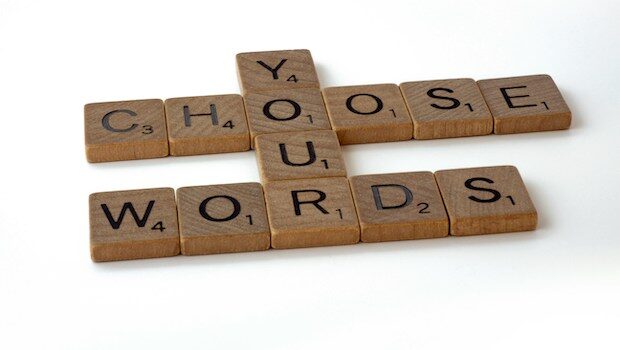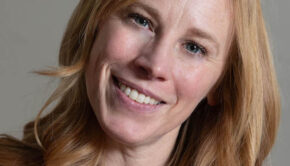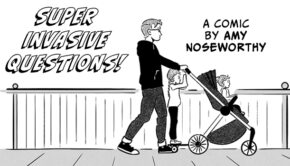Cultural Studies: My Son, the N-Word, and Knowing Your Memes
My son learned the N-word in the back seat of our car sometime last summer. His friend L, a precocious white boy with hair like a seventies pop star, had already taught us both some things about language that day.
Outside 7-Eleven, L had professed to being a time traveler.
Me too, said my son Dash. I’m from Ancient Greece. I’m from 8000 BCE!
Greece doesn’t exist yet in 8000 BCE, L said. We speak a proto-Indo European language, most likely.
Back in 2023 CE, L and Dash ate popsicles and played at the park. In a cluster of trees set back from the playground, L created an elaborate mythology involving gods and altars and offerings. Dash did his best to play along, but the highlight of his day was when their ball got stuck in a tree, and Dash was able to free it by beating the branches with a stick.
The Venn diagram of their shared interests stretched thin as the afternoon wore on, and soon we were headed back to L’s mom’s apartment. I don’t know how the subject of the N-word came up, other than the fact that L was always talking about words.
Dash knew it existed, and knew it was a bad name to call Black people, but I had never said the actual word in front of him (or elsewhere, for that matter, although it’s possible I read aloud from Huckleberry Finn somewhere in my past).
Dash wanted to know what the word was. Who wouldn’t?
L, a child who knew the power of incantation, said it, and Dash repeated it.
Then L said, But it makes me uncomfortable to say it out loud.
Me too, I agreed.
Dash tried it on again.
Now we’ve said it, I said breezily. I don’t think we need to say it again.

*
You need to know the racial context of this story. Arguably you need to know the racial context of every story. The school Dash attends is 86% Latinx. Our community is gentrifying. I am white. Dash’s other mom, C.C., is Mexican-American. C.C. and I adopted Dash at birth from Mexican-American bio parents. Dash’s brother, Joey, is also adopted—half white and half Black, to the best of our knowledge.
I add these qualifiers like incantations of my own: as far as I know, to the best of our knowledge. Or maybe I wear them like some other bit of magic, an amulet of protection.
No one, upon seeing Dash and Joey at this moment in time, would ever suspect they were not biological brothers. Although Dash’s hair is straight and Joey has Bob Ross curls, they both have medium-brown skin, dark brown eyes, and long lashes. They both have noses whose bridges I want to run my finger along, reading them by Braille.

*
The N-word resurfaced near the start of the current school year, although I can’t say for sure which came first, the word or school. It came on the heels of a bumpy summer with too many day camps, too many new people to meet, too many long hot days. Dash struggled with the whiplash of all of it. Sometimes he talked sweetly to Joey, tickling away his tears, sharing his favorite toys, finding car videos he thought Joey would like. Other times, he met Joey’s new independent toddlerness by hiding toys, donning scary masks, growling suddenly. He would drape his long legs over Joey’s short chubby ones and clamp down tight when Joey tried to squirm away.
Our next door neighbors, Jasmine* and Juanita*, were changing too. Days into middle school, Jasmine was ending all her sentences with “Girl, bye.” It was a universal dismissal of all that she could not be bothered with.
In our yard, Jasmine sprayed Juanita with a shower of Girl, byes and Dash sprayed Juanita with his Nerf water gun, and a sprinkling of his own words. Fuck and bitch, and once, the N-word. Ending with an A. He shot words and water into the air, not aiming at anyone exactly, but hitting everyone.
I explained that the only acceptable time to use bitch was when literally referring to a female dog. I didn’t attempt to explain the girl power or drag queen contexts.
I explained that the N-word came from slavery times, that it was a way of saying Black people were less than human.
I didn’t know that, he said. I thought it just meant “You’re so fucking Black.”
I’m not sure that’s…better? I said.

I explained that sometimes Black people say the N-word to each other, with an A at the end, but that’s really none of our business. We don’t need to use the word with any letter at the end.
But I’m part Black, he said.
No, you aren’t, I said. To the best of my knowledge.
You’re a person of color, I added, meaning, look, I know I’m just some white lady who doesn’t know the meaning of What the sigma. Meaning, I know this is all different for you than for me.
I’m a person of color! he repeated. Explosively. Trying it on. He jumped on the crest of our couch and touched the low part of the ceiling.
I didn’t hear him say the N-word again for a long time. But it became like a crush he spotted in every crowd. Did that song (a children’s nursery rhyme) contain the N-word? Did Joey just say the N-word? Did his friend call C.C. the N-word?
*
Adoption agencies—the good ones, at least—require prospective adoptive parents to go through transracial adoption training if they are open to adopting a child outside their own race. The quality of such trainings runs the gamut, but they all tend to be geared toward white parents who are adopting children of color. They talk about how your child might feel if they don’t have role models who look like them. They don’t talk about what to do if your Mexican kid becomes obsessed with an anti-Black slur. Like most parenting experiences, there is endless advice on how to deal with Big Issues, but in reality, the Big Issues attack from the side and catch you blind.
*
C.C. and I debated what this was Really About. It was about figuring out friendships, she said, citing a group of mean, potty-mouthed fifth-graders in his after-school program.
Another kid at school told Dash he wasn’t really Mexican because he didn’t speak Spanish. His school was full of Latinx kids who spoke Spanish and those who didn’t. The push-pull of generations and gentrification played out on the playground.
I’ve gotten that one too, said C.C., whose parents used Spanish only when they wanted to keep secrets.

C.C.’s theories circled around her experiences with friendship and identity, and mine circled around my feelings about having two kids. Joey was still a relative newcomer to our family. Hadn’t I sort of abandoned Dash to fuss over Joey? Wouldn’t that make Dash, possibly, want to either be Black like this beloved baby, or be anti-Black, because look at how this Black baby had messed up his life?
Pan out a little more. Beyond his fear of being abandoned for a younger child is a fear of abandonment by his birth parents. The abandonment that actually happened, no matter how lovingly. I couldn’t make his birth parents appear in his life anymore than I could make systemic racism disappear.
*
Around this same time, Dash started greeting his friends with the question: “English or Spanish?”
If they said “English,” he would say, Whoever moves first is gay!
If they said “Spanish,” he would say, Quien se mueve primero es gay.
(On the plus side, he was learning some Spanish?)
At this point, if I were within earshot, I’d say, I just moved. I’m gay. Yay.
I reasoned that I was modeling that it was fine to be gay. Secretly, I wanted to avoid witnessing a scenario in which kids vied not to be gay. I grew up with that; I tried for years not to move, not to be gay, and I reached my lifetime max.
When I broached the topic with Dash, he said, It’s a meme, as if that explained everything. I looked it up on Knowyourmeme.com—there had to be more to it than what Dash acted out, didn’t there?
No, as it turned out, there did not. I followed a link to a TikTok video in which a guy asks straight-looking dudes whether they speak English or Spanish, and then challenges them not to be gay. A song that includes a line about “sniffin’ that K” plays.
Sometimes Dash offered wholesome variations: Whoever moves first is a great friend!
Sometimes, when it was just the two of us, he would say brightly, I think I’d like to be gay when I’m older.
A Facebook post in a group for queer parents assured me the meme was widespread, if fading. Some of the kids with queer parents were hurt by it. Others, like mine, were perpetuating it. The two reactions aren’t mutually exclusive. Love is love, but fear is many things. Dash’s friends mostly ignored him, ignored the meme, and it began to lose whatever edge and appeal it initially held.

*
I try to look at all this through his eyes—the possibilities and hazards, the identities to claim and cast off—but of course I have only ever looked at the world through my eyes, which are blue. I do remember noticing, around third grade, that a social hierarchy existed within the confines of my white, middle class elementary school. By fifth grade, I knew where I stood and where I wanted to stand, and they were different places.
On two occasions, I’ve heard Dash tell people his ancestors are from Puerto Rico. To the best of my knowledge, this isn’t true. Maybe he’s seen the photo collage in our hallway of the trip C.C. and I took there a couple of years before he was born. The brightly painted buildings, the bits of sea glass we collected on the beach, the horses we rode across a stream.
Maybe—definitely—he has seen YouTube videos that have helped build this Puerto Rico of the imagination.
Identity is always a place of the imagination; the trouble comes when one collective imagination bumps up against another. I can’t keep him in my imaginary tower, where families look like rainbows, each stripe equal in width and brilliance. In this way, there’s no getting ahead of it. The point is to avoid freezing with fear—of being gay, of a word, of messiness. Whoever keeps moving is alive.
*Names have been changed





